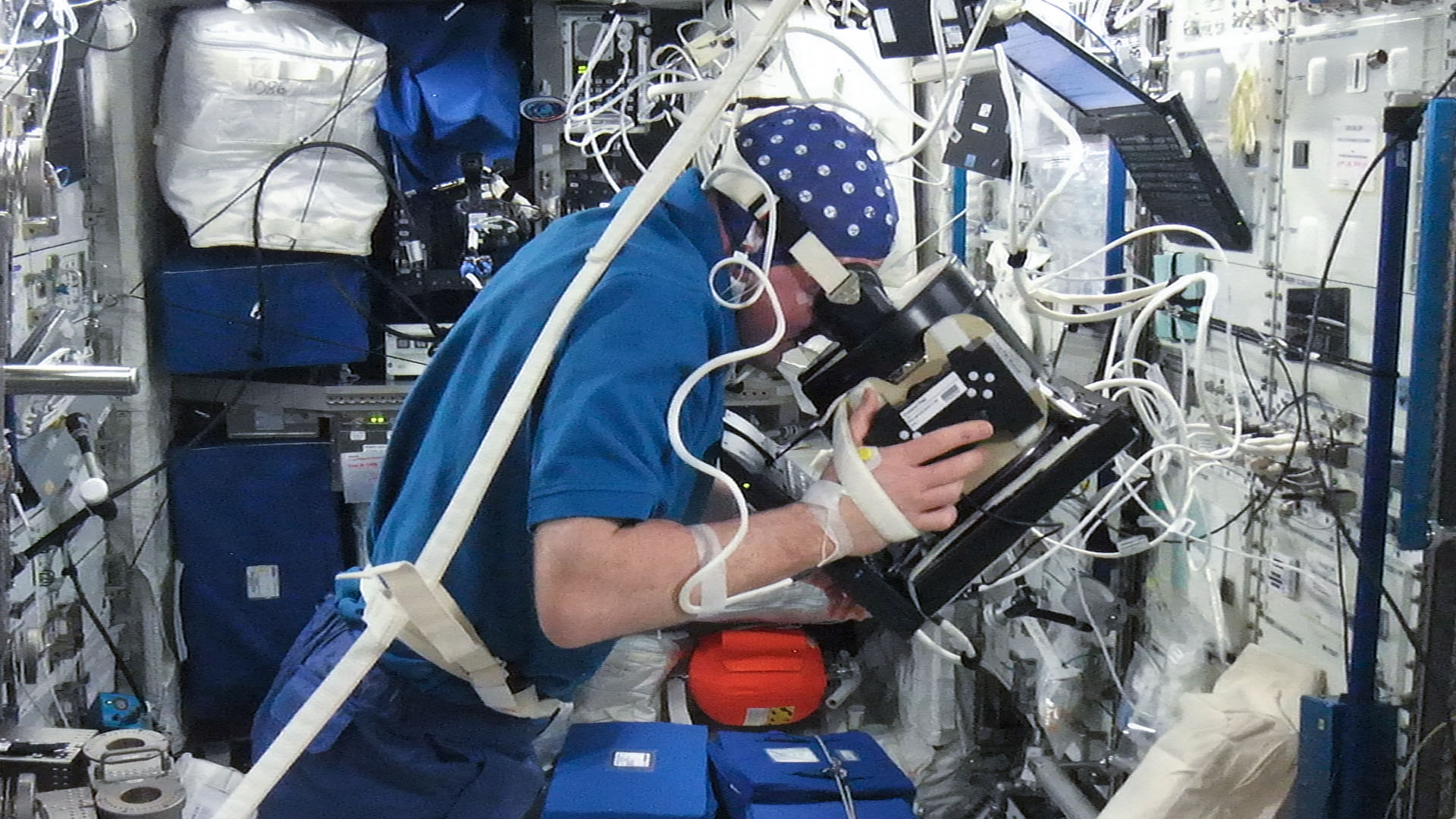The latest paper by the TTK Environmental Adaptation and Space Research Group, “Persistent deterioration of visuospatial performance in spaceflight” was recently published in Scientific Reports. The experiment investigated the effect of long-term space travel on brain and cognitive function.
While the era of manned spaceflight to Mars is soon to come, little is known about how such a long journey to outer space would affect the cognitive abilities of astronauts. The research group was first to reveal that, compared to pre-flight, crewmembers of a 6-month long space mission were slower and made more errors during visuospatial tasks while brain electrical potentials specific to voluntary and automatic attentional capacity were significantly diminished during both the initial and later stages of spaceflight.
In the experiment, sponsored by the European Space Agency (ESA), 5 astronauts performed response time tasks requiring visuo-spatial capabilities and working memory, while brain electrical signals were also recorded in a total of 9 sessions. The astronauts conducted the experiment 3 times in the months before launch, providing a reliable baseline for identifying the impact of spaceflight. Measurements on board the International Space Station took place first in the early stages of the half-year mission and then nearly 2 months later. Performance deterioration was still detectable in the first week after return, while 2-3 weeks later only a small difference in EEG signals was detectable.
The results indicate a limited ability of adaptation to spaceflight conditions, and also raise the question whether a decline in performance measured in visuo-spatial tasks indicates a decline in overall cognitive abilities. As Mars missions are expected to be even longer, it is necessary to further investigate whether the changes revealed by the research team could threaten the success of Mars expeditions.
Endre Takács, Irén Barkaszi, István Czigler, Lívia Gabriella Pató, Anna Altbäcker, Joseph McIntyre, Guy Cheron & László Balázs. Persistent deterioration of visuospatial performance in spaceflight. Scientific Reports 11, 9590 (2021). 10.1038/s41598-021-88938-6

